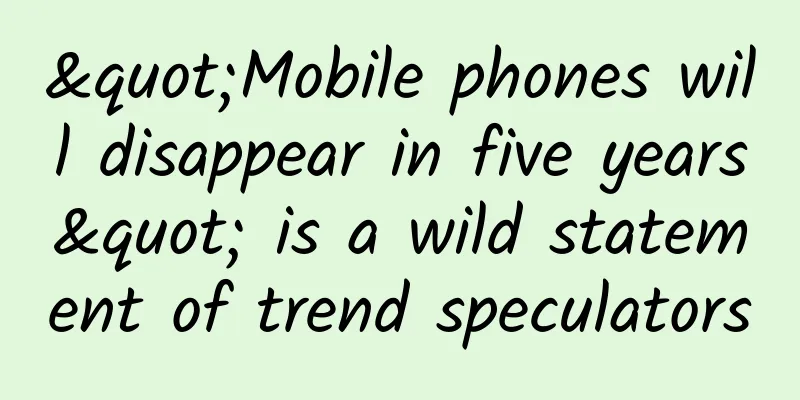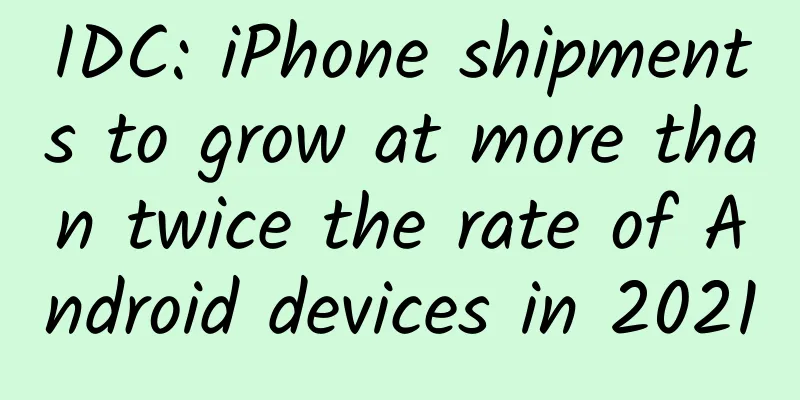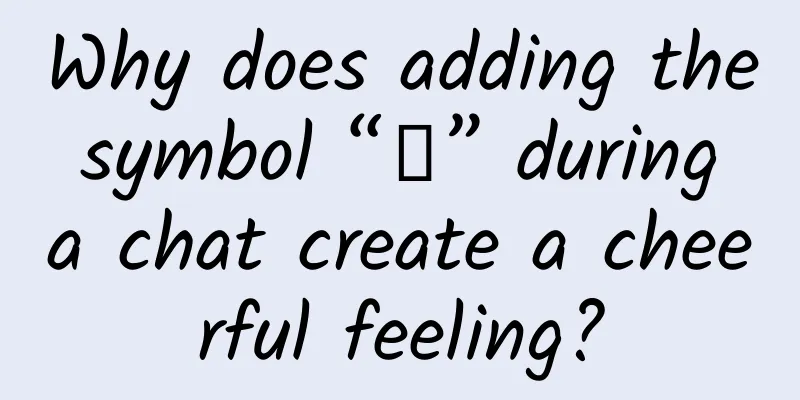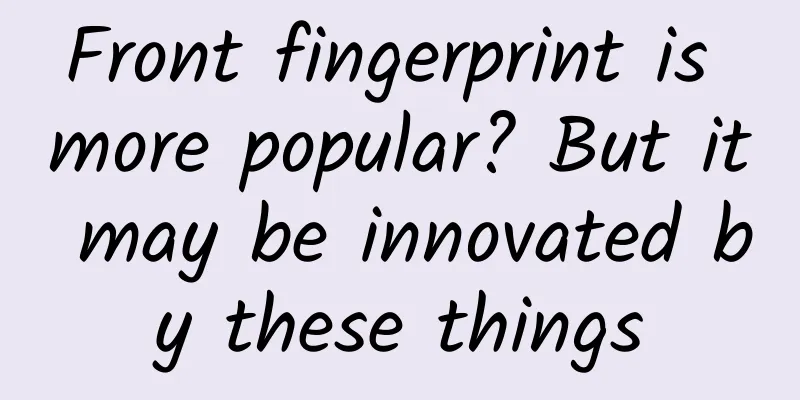In this lonely universe, are humans an exception?
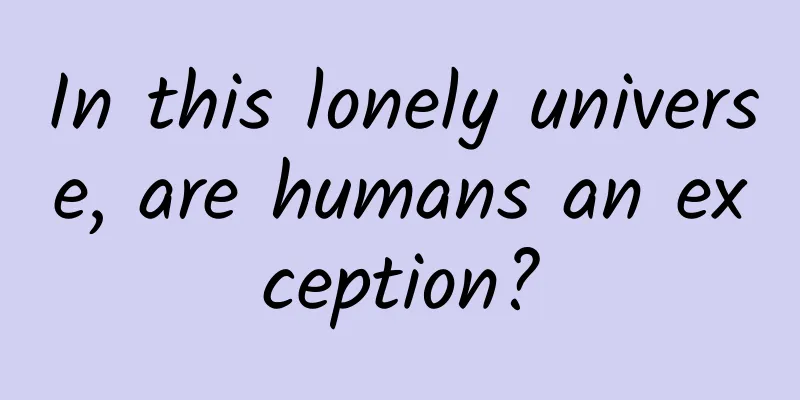
|
In this lonely universe, are humans an exception? Leviathan Press: Einstein once said, "The eternal mystery of the universe is its comprehensibility. It is a miracle that the universe can be understood." However, how do we define comprehensibility? Optimists believe that in the near future, the technological singularity will be triggered by the emergence of machine intelligence that surpasses today's humans and can evolve on its own, or other forms of superintelligence. Because its intelligence far exceeds that of today's humans, the development of technology will be completely beyond the understanding of all mankind, and it is even impossible to predict its occurrence. There are also pessimists. According to the number of US patents and the status of technological breakthroughs in the world, the rate of human technological innovation peaked in 1873 and began to slow down. Behind technology are mathematics and science. Will the limitations of the latter two limit our human cognition and understanding of the universe? As the author of the article said, since we believe that neither paramecium nor dogs can think about the nature of physical reality, then how can we, Homo sapiens, prove the limitations of our cognition (perhaps if a higher-level extraterrestrial civilization is discovered in the future, that is another matter)? My dog is really smart and has done a lot of things that no one with a certain IQ could do, but I still doubt there are some concepts that he can't imagine or even think of. He can follow a command to sit still or fetch a ball, but I doubt he can imagine that the metal can that holds dog food is made of processed stone. I doubt he could imagine that the white line streaking slowly across the sky was produced by a machine, also made of processed stone, and I doubt he could imagine that the modified dog food cans flying in the sky looked so small only because they were flying too high. © Tenor Also, I wondered, is there a way to at least let my dog know that these concepts exist? It wasn't long before this question began to spread in my mind. Soon, I began to wonder if there were concepts that I didn't even know existed: I had never even thought about them, let alone thought deeply about the principles behind them. Is there a way for me to understand things that are beyond the limits of my imagination? In trying to answer these questions, I have generated many more. In this article, I will introduce 10 questions in turn. These questions help us understand my original questions, help us understand their interests, and help us answer them - which is indeed very relevant to us. Can we know things beyond our imagination? If so, what can we know about them? These questions are partly about the biological functions of human intelligence and partly about our greatest cognitive theories, especially language and mathematics. They also involve whether there is a physical reality beyond our world, or whether there is a civilization of advanced non-human life forms running countless simulated realities in their computers. In addition, this type of question is also related to our technological products. Will these technological “children” one day surpass our cognitive level? Judging from the following 10 questions, the theory of human exceptionalism is in a precarious situation [1]. Perhaps we are more like dogs (or single-celled paramecium) than we like to admit. While human history has seen countless triumphs of human ingenuity, the following questions paint a very different picture: I want to emphasize how deeply and terribly limited human achievements are today—language, science, mathematics. 1. On some vaguely defined scale, are we humans smart or stupid? This question does not seem complicated. For a long time, the highest intelligence level of creatures on Earth has grown very slowly, or even stagnated. Even now, the human brain often uses various algorithmic tricks when processing sensory information related to movement, so that the brain can do as little actual thinking as possible. © Gif Abyss/Alpha Coders This means that intelligence is very expensive for the human body. It turns out that the brain has a very high metabolic cost per unit of mass, far exceeding that of almost any other organ in the human body (the heart and liver are the exceptions). Therefore, the smarter an organ is, the more nutrients it needs, otherwise it will die. From an evolutionary perspective, being smart is a sign of stupidity. So far, we still don’t know how the brain, as hardware, allows us to have abstract intelligence. We don’t understand “how the brain creates consciousness”. However, given that higher intelligence necessarily requires a larger brain capacity and higher metabolic costs, evolution may allow humans to stay at the lowest level of abstract intelligence, as long as it allows Homo sapiens to survive in their own ecological niche. You see, even a minimal level of intelligence was enough to keep humans going as hunter-gatherers for millions of years, until we luckily hit the Neolithic Revolution. © NPR Is this conclusion correct? To truly answer the question of whether we are smart or stupid, we first need to know that there are several types of intelligence. The ability to perceive the external world is a type of intelligence, a cognitive ability; the ability to remember past events is also a type of intelligence; the ability to plan future actions is also a type of intelligence. In addition, there are many cognitive abilities that other creatures have but we humans do not have. This is true even if we consider only the intelligence we humans have created: modern digital computers are far superior to us at performing many, many computational tasks. There is also a small number of cognitive tasks that humans still perform better than the digital computers we have invented, but the number of these tasks is shrinking over time. Perhaps, human mathematics only shows a corner of reality, and a very small corner at that. © Hackaday This is still changing. It is very possible that the capabilities of future life on Earth will exceed those of today’s digitally intelligent computers. This sense of cognitive expansion is not unique to our time in history. Consider the collective cognitive capabilities of all the organisms that live on Earth. Imagine we now plotted how this collective cognitive capability has changed over billions of years. It can be asserted that no matter what sophisticated time-varying analysis techniques we use, no matter how we visualize the so-called "cognitive ability", we can conclude that the slope of the curve of the change in the overall cognitive ability of life on Earth must be strictly positive. After all, there has never been a stage in history where the highest level of cognitive ability possessed by biological entities in the Earth's biosphere has declined. The entire biosphere has never lost the ability to improve the cognitive level of various organisms. In addition, as time goes by, not only have the various cognitive abilities of all creatures on Earth been deepened, but the types of cognitive abilities have also been improved, that is, Earth life has developed more and more cognitive abilities. In many ways, Earth life is becoming smarter and smarter. If we believe that this trend can continue into the future, then we must conclude that in the future there will be some or even several kinds of life that have powerful cognitive abilities that all Earth life (including us humans) do not have today. Although we often boast about how smart humans are as a whole, compared to future humans (and even other future creatures on Earth), our current cognitive abilities can only be described as highly limited. Before we can accept this conclusion with a clear conscience, however, we need to look more closely at the cognitive ability graph above. In fact, until about 50,000 years ago, the overall intelligence of life on Earth was growing steadily and slowly. But then, as Homo sapiens embarked on the development trajectory that eventually gave rise to modern science, art, and philosophy, the overall intelligence level of life on Earth took a leap forward. At present, it seems that we may still be in the middle of this "leap", and the level of intelligence may still accelerate significantly. At the same time, the number of types of intelligence we have mastered has far surpassed that of our ancestors. © Gif Abyss/Alpha Coders 2. There seems to be a huge gap between the cognitive abilities of human ancestors and those of modern scientists, artists, and philosophers. What is the reason for this? For hairless apes living on the savannah, treasures buried deep in the human cognitive palace, such as the Standard Model of particle physics, Chaitin's incompleteness theorem, and the Zen parable "The Ten Essays on Cattle Herding," would not bring any obvious benefits to their physical health. In fact, mastering these abilities may have caused them to pay a huge health cost. So why do we modern humans master these abilities? To answer this question, it is necessary to first look at the most universal achievements of human beings, which are also the most vivid demonstrations of human cognitive ability: science and mathematics . With the help of science and mathematics, human cognitive ability has been greatly improved and thinking has been greatly expanded, creating many technological achievements from printing presses to artificial intelligence. In addition, as time goes by, cultural and technological development gradually accumulates, eventually amplifying the positive effects of broadening the mind. In turn, the latter accelerates the development of culture and technology. This virtuous cycle has enabled human cognitive ability to far exceed the level that can be achieved by genetics and evolution alone, and may even lead to a cognitive gap between human ancestors and modern scientists, artists, and philosophers. © Gifer However, while this virtuous cycle improves our original cognitive abilities (those acquired through inheritance and evolution), it is not clear whether it can provide us with completely new cognitive abilities. The fact may be that this cycle will never do this. If this is the case, then the science and mathematics generated by this virtuous cycle will never be able to break through the limitations of the original cognitive abilities that humans had when the cycle was first started, even in the future. This also provides another explanation for the huge difference in cognitive ability between our ancestors and modern humans. Perhaps this difference is not a "chasm" at all, but a more accurate description is: a small gap in the vast field of knowledge. In an article entitled "The Unreasonable Effectiveness of Mathematics in the Natural Sciences" (1960) [2], the Hungarian-American theoretical physicist Eugene Wigner asked the question: Why can our mathematical theories capture the essence of physical reality "so effectively"? The answer may be that our mathematics may not work at all, that it may capture only a tiny part of reality, and a tiny part at that. The reason mathematics seems to work so well is that our horizon is limited to this tiny part, to the very few areas of physical reality that we can imagine. The interesting question, then, is no longer why humans have developed thinking abilities far beyond what our ancestors needed to survive, but whether our thinking abilities have reached the minimum level required to understand reality. 3. With such a powerful mind, will it be possible for us to create entirely new forms of science and mathematics that will allow us to access aspects of physical reality that we could not have imagined otherwise? Or will we be forever trapped in the science and mathematics that we already have? As early as 1927, the British scientist John Burdon Sanderson Haldane posed an early version of this question in his collection of essays, Possible Worlds. “I now suspect that the universe is not only stranger than we suppose, but stranger than we can suppose,” he wrote. In the following years, similar claims have emerged, all of which suggest that the universe is "weirder" than we can "imagine" or "think about." However, since the proponents of these views have their own careers, they generally do not discuss the implications of such questions in detail. Their view is usually that the universe is weirder than we can currently imagine because human scientific knowledge is still limited, and non-human thinking ability itself has an insurmountable ceiling. For example, Haldane believes that as long as we "stand in a different perspective", reality will open up to us: "One day, humans will be able to do what I imagine in this article and see the objective existence of matter from the perspective of non-human thinking." In the decades that followed, other versions of this question began to appear in scholarly writings—mostly in studies of the “nature of consciousness”[3] and the closely related “mind-body problem.”[4] These studies of consciousness and the mind echoed Haldane’s ideas, attempting to look at the problem from the perspective of octopuses, viruses, insects, plants, and even entire ecosystems in search of intelligence beyond that of humans. The informal nature of many of these studies reflects the fuzzy, unresolved nature of the question of the nature of consciousness. But we can still explore the question of whether the human mind can transcend its current limitations in a more rigorous way. Take the recent very popular view (in fact, it has been around for a long time, not just recently), for example, many people think that the universe we live in is a simulation world in a computer created by some alien race with extremely powerful technological capabilities. This view can actually be extended infinitely: perhaps, these alien races that simulated the human universe are also like this, living in a computer simulation world created by alien races with higher technological capabilities. © Tenor From another perspective, in the not too distant future, it is entirely possible for us humans to create simulated universes and fill them with creatures with "cognitive abilities". Moreover, the creatures in these simulated universes can also create their own simulated universes, and so on. The final result is layer upon layer of intelligent species. Each layer will use computers to simulate a universe to produce the next layer of intelligent species, and we humans are in one of these layers. So, the question of "Are we living in a simulated world?" becomes a little complicated: for some levels of organisms, yes, we humans do live in a simulated world; but for other levels of organisms, no, not only are we not living in a simulated world, but we created their simulated world. For the sake of discussion, we limit the premise to that humans do live in a simulated world. This leads to the next question. 4. Is it possible that organisms that only live in computer simulations have created their "higher" organisms through accurate computer simulations? If the answer is no, then everything we think of in this universe is only a small part of all the knowledge held by higher beings. At the same time, it also means that there is some kind of deep reality that we cannot even imagine. The answer to this question, of course, depends on the precise definitions of the terms “simulation” and “computer,” but formal systems theory and many laws of computer science tell us that the answer is no, no matter which definition we use. I don't want to go into these theorems that show the limits of our cognitive abilities. Instead, I want to take a step back and look at these theorems as examples of the content of human mathematics, of human mathematical abilities, of human ideas. That is, a good portion of human mathematics demonstrates that our cognitive abilities are highly limited and inadequate for a full understanding of reality. But what about the rest of mathematics? © Tenor 5. Regardless of content, do the forms of human science and mathematics also indicate that our cognitive abilities are highly limited? Open any math textbook and you will see explanatory statements attached to the formulas . Human mathematics is actually the sum of all the formulas and explanatory statements in all the math textbooks ever written. Now, please note that every formula and every explanatory statement in the textbook is a finite string of symbols, a visual finite sequence consisting of the 52 Latin letters and some special symbols (such as "+" and "="). For example, 1+1+y=2x is a finite sequence consisting of 8 elements in the entire finite symbol set. What we call "mathematical proofs" are actually strings composed of such finite sequences. This feature of human mathematics is of great importance for understanding reality in the broadest sense. To paraphrase Galileo, all of our current physical knowledge—our rigorous understanding of the foundations of physical reality—is written in the language of mathematics. Even the less rigorous sciences are constructed using finite strings of symbols like mathematics. This is the prediction of how humans describe science, and it is the representation of our knowledge. Our understanding of reality is therefore just a large collection of finite sequences of symbols, each of which contains elements of a finite set of symbols. Please note that the meaning of these symbol sequences in math textbooks is not complicated. It can even be said that they are no different from the patterns on the entrails of sacrificial sheep or the crack patterns on tortoise shells after burning. Our science and mathematics are just a finite set of various symbols, and these symbols themselves have no meaning. © Tumblr This conclusion is not new. In fact, a lot of work in philosophy has grown out of it. Related research attempts to make our scientific and mathematical theories more precise by relating the finite sequences of symbols we use to external things - this is what cognitive science and philosophy call the "symbolic foundations problem". Mathematics has also tried to solve this problem in a similar way, namely by expanding formal logic to include modern model theory (which studies the relationship between statements and the models they describe) and metamathematics (using mathematics to study mathematics). The fact that modern science and mathematics are built exclusively with finite sequences of symbols is truly astonishing: apart from these finite sequences of symbols, there is no other work and no other form of modern mathematical deduction. 6. Are these finite strings of symbols—the external forms of our mathematical and scientific language—necessary features of physical reality, or do they simply reflect the limitations of how humans formalize physical reality? This question immediately leads to the next one: 7. If human mathematics is expanded to include infinite strings of symbols, how will our perception of physical reality change? If we calculate at a finite speed, then an infinite proof using an infinite sequence of symbols cannot be concluded in a finite time. To reach a conclusion in a finite time, our cognitive abilities must be high enough to perform "supercomputing" or "super-Turing computing," a hypothetical state that can only be achieved using devices that are much more powerful than today's computers. For example, if we put a computer on a rocket and then accelerate the rocket to near the speed of light, the computer can use relativistic effects to compress massive calculations into a limited time. © GIPHY Yet, even with supercomputing, this extension of our current form of mathematics is still presented in the form of human mathematics. What would mathematics look like if it were not described in terms of finite sequences of finite symbols? American philosopher Daniel Dennett and others have pointed out that the forms used by human mathematics, and science more broadly, just happen to fit the forms of human language. In fact, starting with Ludwig Wittgenstein, philosophers have generally viewed mathematics as a special case of human language. This view holds that the grammar of mathematics, like the grammar of human language, begins with dialogue and communication. What amazes me is the limitations of human language, and how universal these limitations seem to be. The inherent design of human communication is consistent with formal logic and the theory of Turing machines. Some philosophers think this is a lucky coincidence, a wonderful coincidence. We happened to invent a cognitive tool that conforms to formal logic, namely human language. These philosophers think that this means that we are also capable of fully understanding the laws of the physical universe. A naysayer might remark, with a note of strong sarcasm, that “humans are lucky to have exactly the cognitive abilities needed to understand all of physical reality, no more, no less!” They would likewise wonder whether ants, who can only construct “rules of the universe” from pheromone tracks, would conclude that they are lucky enough to have the cognitive abilities to understand “how the world works”; or whether phototropic plants would conclude that they are lucky enough to have the cognitive abilities to track the sun, and could also construct “rules of the universe” on that basis. © The Next Web Human language allows recursion, so we can construct abstract sequences of symbols from a limited alphabet. And, in fact, humans do create all kinds of prophecies. Linguists such as Noam Chomsky marvel at this. But what amazes me is the limitations of human language, which seem to be universal. 8. Is it just a lucky coincidence that our current cognitive abilities can construct various mathematical and physical theories? Or, to put it more bluntly, are we simply unable to imagine mathematical and physical content that cannot be expressed with our current cognitive abilities? Take the single-celled organism Paramecium, an oval-shaped creature that floats in oceans and stagnant ponds. It seems obvious that if a “problem” doesn’t have a direct impact on your life, then the Paramecium can’t imagine concepts related to that “problem”—just like my dog can. Possible answers to questions about reality—certainly answers that we think of as possible—are beyond the reach of the paramecium, and it cannot comprehend the questions themselves. But, more fundamentally, it never occurs to the paramecium that it is possible to ask questions about the nature of physical reality. Therefore, we can say that cognitive concepts related to questions and their answers are key tools for understanding physical reality, and paramecium does not have this tool. It is very likely that paramecium does not even know what we mean by "understanding physical reality". The reason for this result is ultimately due to the limitations of paramecium's cognitive ability. © GIPHY But are we humans so different? Are we free from such limitations? In fact, it is almost certain that human cognitive abilities also have limitations. So we have the second to last question of this article. Ironically, this is a self-referential question: 9. Just as the paramecium will never understand the concept of "problem", are there certain cognitive components necessary for a comprehensive understanding of physical reality that will forever be beyond our imagination due to the limitations of the human brain? To explain this question, it may be helpful to first emphasize what it does not say. First, what exactly is it that we can never know? How much can we know about this question itself? This question does not impose any restrictions. In fact, there are many things that we can never "know" but we can still imagine. Of all the things we can never know, those that we can't even imagine are actually a very small part. So strictly speaking, the question should be to ask, what can we "perceive" about this much smaller subset? © WIRED For example, in the many-worlds interpretation of quantum mechanics, although we can never know what exactly happens in other branches of the world, we can imagine it [5]. Here, I am not concerned with information that is completely unknowable, nor with the values of scientific variables that we do not know simply because we cannot observe them directly, such as events outside the range of the Hubble telescope and events within the event horizon of a black hole. The reason we will never know about these events is simply that they are not observable with our current engineering capabilities, not because of any inherent limitations in science and mathematics (which the human brain is built with). In other words, we can know about these events, we just haven't found the path to them yet. So the question is really about what kinds of cognitive content there are that are essentially unknowable, of which we can never become aware (let alone describe or use). It seems likely that our descendants will be able to imagine more things than we are. For Paramecium, it cannot even imagine what a "problem" is, that is, for Paramecium, the concept of "problem" itself is a cognitive content that can never be known, let alone asking or answering a question. What I want you to pay attention to is whether there are some cognitive contents that we humans cannot imagine at all but are crucial to a comprehensive understanding of physical reality . In other words, the point is whether there are some cognitive contents that are essentially knowable, but humans will never be able to know them because of their inherent limitations, and know the ultimate answers to these physical reality problems. This brings us back to the question we briefly discussed above: how will the symbol sets we can imagine evolve in the future? This assumes, of course, that there are cognitive contents that are intrinsically knowable but that humans can never imagine; it assumes that we can know certain aspects of things that we really cannot imagine. © NASA/ESA 10. Is there any way we can imagine to verify whether future human science and mathematics can fully capture physical reality? From a certain perspective, this question seems like an obvious scientific version of a conspiracy theory. One could argue that it is not that different from any other great unsolvable problem. We cannot prove, empirically or theoretically, that ghosts do not exist, or that Marduk, the patron god of ancient Babylon, is not behind human affairs. However, there are at least three pieces of evidence that suggest (at least in favor of) that we may in fact have an answer to this question (in some respects). First, if we really build a supercomputer and use it to think about what knowledge we have never touched, we may make progress on the road to answering this question. We can even make a bolder guess that as human cognitive ability improves, we can construct physical reality that we can never think of through observation, simulation, theory or other processes. In other words, it is the virtuous cycle of mind expansion and technological progress that allows us to get rid of the evolutionary coincidence that gave birth to the brains of our ancestors. Secondly, if we encounter extraterrestrial intelligent life and then participate in a vast intergalactic species communication network (a kind of cosmic database), it is entirely possible to get the questions and answers we want from other intelligent life. In this way, if we want to know whether there is a physical reality that is essentially knowable but can never be imagined by humans, we only need to send the question to the cosmic forum and listen to everyone's opinions. © NASA/ESA/CSA/Judy Schmidt Imagine what our most general evolutionary descendants might be like. By this I mean not just future humans who evolve from us according to traditional neo-Darwinian evolutionary theory, but members of all species that we intentionally design, whether organic or inorganic (or even both). It seems likely that these descendants will be able to imagine more things than we are. Moreover, it now seems likely that our more cognitively capable "children" will be born in the next century. We will probably become extinct soon after they arrive (just as all good parents will sacrifice themselves to pave the way for their children). Therefore, when we look at our children with our mouths wide open in surprise, we can ask them these questions that we can't figure out, just as we do it as the last thing before we leave. References: [1]arxiv.org/abs/2208.03886 [2]www.maths.ed.ac.uk/~v1ranick/papers/wigner.pdf [3]aeon.co/essays/consciousness-is-neither-a-spooky-mystery-nor-an-illusory-belief [4]aeon.co/essays/the-hard-problem-of-consciousness-is-a-distraction-from-the-real-one [5]aeon.co/essays/how-the-many-worlds-theory-of-hugh-everett-split-the-universe By David H. Wolpert Translated by Shrimp Soldier Proofreading/Rabbit's Light Footsteps Original article/aeon.co/essays/ten-questions-about-the-hard-limits-of-human-intelligence This article is based on the Creative Commons License (BY-NC) and is published by Xia Bing on Leviathan The article only reflects the author's views and does not necessarily represent the position of Leviathan |
<<: Science illustration | "Kuafu-1" achieves three world firsts by following the sun
Recommend
Taizhou SEO Training: What should I do if the website being optimized is frequently attacked? Find a caching tool to help
In the process of website optimization, it is oft...
Electric Technology Car News: With a distinctive appearance and fashionable interior, can Dongfeng AX4 become a small SUV with the potential to be a hit?
I don’t know if you have noticed that many brands...
On World Pangolin Day, can we wait for good news about pangolins?
Today - the third Saturday in February - is World...
Insights | Three abilities a person needs
Famous Artists Gallery | Chen Banding, also known...
Why do home bloggers’ homes have such a strong sense of atmosphere? The key is to look at this!
On a certain social platform, people often ask th...
Is it a general trend that brand advertisements are getting smaller and lower-end?
As various year-end bonus information launches th...
Shen Mengchen's first car for taking care of her baby, AION S MAX is available on the market starting at 149,900 yuan
In the past, when a man became a father, he would...
WeChat's anxiety, anxious WeChat
Key points of this article More modules, more con...
7 cases of myocardial infarction were treated in one and a half days! Doctor: They all have these common characteristics!
Reviewer of this article: Chen Haixu, Deputy Dire...
Energy conservation without loss? Is South Korea's discovery of "room temperature superconductivity" reliable this time?
A team of physicists from South Korea recently up...
The central bank officially announced that the "digital RMB" will soon appear and "scan" will be eliminated
Preface: In recent years, with the continuous dev...
There is a big game behind Youpengpule's 500 million advertising bonus
Recently, Shao Yiding, chairman of China's la...
China Automobile Dealers Association: The new four modernizations index of passenger cars in March 2020 was 53.7
The Passenger Car New Four Modernizations Index, ...
Humidifiers can kill people? These three types of people are not recommended to use them →
As the weather gets colder, whether in the north ...
